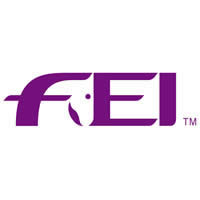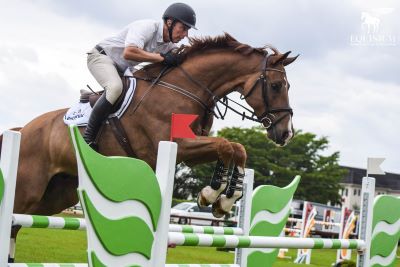Wellington, FL – March 18, 2021 – Equestrian Sport Productions (ESP) management announces that there has been a negative test result for Equine Herpes Virus on Thursday, March 18, 2021, on the horse on the Equestrian Village showgrounds for the Adequan® Global Dressage Festival.
In an abundance of caution, the “Horse A” was tested on Wednesday, March 17, for Equine Herpes Virus using a PCR test by an independent veterinarian after it had a fever. Horse A no longer has a fever and remains in isolation on the Equestrian Village show grounds while plans are made for it. Horse A’s barnmate, “Horse B,” never had a fever or other symptoms and is competing as scheduled at AGDF.
ESP again urges all horse owners to adhere strictly to biosecurity protocols and note that restrictions are still in place at PBIEC in order to maintain the health of all of the horses on property. They are as follows:
- Anyone shipping horses into the PBIEC and Equestrian Village facilities will be required to sign a declaration stating that the horses entering the facility have not competed at other Florida venues outside of Wellington or been in close contact with horses that competed in other Florida venues outside of Wellington within ten (10) days prior to their arrival.
- Starting Monday, March 8, any horses shipping onto the property (both WEF and AGDF grounds) will require a health certificate or statement on official licensed veterinarian letterhead and must be dated by Veterinarian within seven (7) days of arriving.
- ESP will require all barns on PBIEC and Equestrian Village show grounds to maintain a temperature log with twice-daily temperatures recorded and recommend posting on each horse’s stall door. Random checks by approved veterinary staff may be implemented.
- ESP and USEF strongly recommend that equestrians do not ship horses throughout the state for the foreseeable future. In addition, we encourage you to cease any European imports you may have scheduled to Florida. We urge those with recently imported horses to isolate and monitor them for 10 days. Horses imported from Europe in the last 14 days and going forward will not be allowed into PBIEC or Equestrian Village show grounds.
- Any horse on the show grounds with a fever of unknown origin or of suspicious origin must be reported to ESP Management. It is always better to err on the side of safety. Isolation stalls will either be available on the grounds or at a local veterinary practice if the need arises.
It is our shared responsibility to keep our horses safe. Similar to the suggested protocols in place for humans due to COVID-19, we urge all equestrians to please remember and abide by the following biosecurity measures:
- Take all horses’ temperatures daily and report any horse with a temperature above 101.5 degrees Fahrenheit or any signs of respiratory or neurological disease to your veterinarian and/or show management.
- Take the temperature of all horses prior to shipping to WEF or AGDF, and do not bring any febrile horses to the show.
- Avoid mixing of horses where possible; practice equine ‘social distancing’.
- Ensure good hygiene and biosecurity at the show and your home farms.
- Make sure your horses are currently vaccinated for influenza and EHV. Under no circumstances should a horse that has been vaccinated compete within 7 days.
- You should be able to document your horse’s normal temperature before arrival. Please do not ship horses with elevated temperatures. It is recommended that you establish a log of temperatures taken at least twice daily. If there is an elevated temperature for more than a 24-hour period, please consult your local Veterinarian immediately.
- Every effort should be made to minimize stress and commingling of horses shipped long distances. Extra hours on a horse van or moving from stable to stable is the fastest way to compromise your horses’ and your neighbor’s horses’ health.
- Please take the time to review equine good hygiene practices and impress its importance to your grooms and barn managers in everyday care.
Further biosecurity protocols and additional resources can be found here:
United States Department of Agriculture Information on Equine Herpesvirus
American Association of Equine Practitioners FAQ on Equine Herpesvirus
United States Equestrian Federation Biosecurity Measures for Horses at Home and at Competitions
ESP has longstanding protocols to manage such events and will provide isolation facilities if and as required. Experience has taught us that early identification is key when dealing with disease outbreaks, and this requires cooperation from everyone within the community.
If you have any questions or concerns about your horse’s health, please contact our veterinary partners: Palm Beach Equine Clinic at 561-793-1599.
For more information, please visit www.PBIEC.com.

